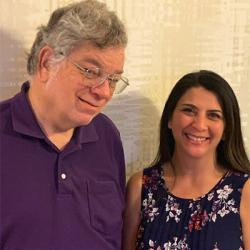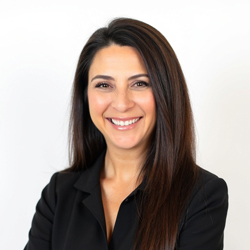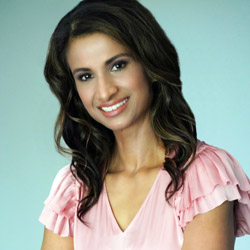The custody court system has long looked to professionals with mental health degrees for expertise in domestic violence cases. This was based on popular assumptions at the time courts first developed practices to respond to DV at a time when no research was available. This is odd because until very recently the academic training for psychologists and psychiatrists provided no information about DV and even now discussion of intimate partner abuse in academic classes is extremely limited. The one profession that works full time on DV issues, receives extensive training and can provide the courts with exactly the information they need is domestic violence advocates. This should have been obvious and has now been confirmed by the US Department of Justice study led by Dr. Daniel Saunders.
Dr. Saunders found that the training court professionals need to respond effectively to domestic violence allegations includes screening for DV, risk assessment, post-separation violence and the impact of DV on children. This is exactly what DV advocates work on constantly and that is missing from so many of the evaluators and other professionals the courts listen to. Dr. Saunders found that advocates have better training and understanding of these issues than evaluators, judges and lawyers. The only reason courts continue to rely on less qualified professionals is because that is the way it has always been done. I have heard judges refuse to listen to an advocate because she did not have a degree, but there is no legal requirement for this specific qualification. In cases that require expertise about fixing cars, a court will routinely qualify an experienced auto mechanic, even one without a high school diploma.
Although the evidentiary laws about qualification of expert witnesses varies by state, the basic qualification is that by virtue of education, training or experience the witness has substantially more knowledge and expertise than a layperson regarding an issue of relevance to the court. By any reasonable interpretation, most DV advocates should easily qualify as expert witnesses in cases with allegations of DV
Nevertheless we have seen too many cases in which a judge refused to listen to an advocate saying the judge had many years of experience and already had sufficient knowledge about DV. The Saunders’ study demonstrates this is wrong. Furthermore a party has a right to put this information on the record. This is the only way to bring current scientific research before the court. Another common excuse is to claim that DV experts are biased because they “always oppose domestic violence.” In other words they support existing laws. Ironically, courts routinely qualify evaluators who are part of the cottage industry that makes its money supporting abusive fathers. They frequently appoint professionals from the cottage industry as GALs and evaluators and treat them as if they were neutral. And these professionals are seeking to undermine the laws designed to take domestic violence seriously. If there was a case involving arson fires, the court would have no trouble qualifying an expert in arson which would likely be someone from the firefighting community. No one would think to disqualify a firefighter because they always oppose arson. The difference is that arson has always been a crime; the firefighting community is overwhelmingly male and in our still sexist society we tend to place more value on what men say; and there are no arsonist rights groups.
I have an unusual level of qualifications and expertise as an expert in domestic violence. I have written or edited some of the leading books in the field. I have been an instructor in a batterer program since 1999. I have worked directly with well over 1000 battered women and well over 1000 batterers. I have worked in the movement since 1983. I have been qualified as an expert in NY, NJ, CA, ND and NM. I am trying to provide more court testimony in order to promote the practice of courts hearing from genuine DV experts in cases involving DV allegations. Eventually I hope that advocates from the local dv agency can serve as the experts so protective mothers will have access to this expertise. Under present rules they should qualify. Given the Saunders’ study and other recent research, it should soon be routine for courts to hear from DV experts in DV custody cases. Imagine if courts start to regularly hear accurate information and research.
 In July of 2021, Veronica York started working as my assistant with the hope and expectation this would lead to a professional partnership. The first time we met in person was for my testimony in a difficult Texas case. The court recognized the enormous harm caused by the abusive father, the children’s lives were saved, and they never had to be exposed to their abuser again. This successful case was the start of a successful relationship that has provided great benefits to clients, children, and our movement.
In July of 2021, Veronica York started working as my assistant with the hope and expectation this would lead to a professional partnership. The first time we met in person was for my testimony in a difficult Texas case. The court recognized the enormous harm caused by the abusive father, the children’s lives were saved, and they never had to be exposed to their abuser again. This successful case was the start of a successful relationship that has provided great benefits to clients, children, and our movement. In addition to conducting expert witness work along with Barry Goldstein, Veronica York is a Certified High Conflict Divorce Coach and advocate for reform in the family court system. After a 20-year career in Sales and Marketing within the Television Industry, she was driven by personal experience to help others navigate the challenges of custody disputes involving domestic violence and child abuse. As a survivor herself, Veronica understands the deep flaws within the system—where father's rights often outweigh child safety. She holds advanced training in Family Law Mediation and frequently speaks and writes about: the current scientific research in the context of Domestic Violence and Child Custody, the misuse of Parental Alienation in family court, and Post-Separation Abuse. Her mission is to create a family court system that prioritizes the safety, well-being, and voices of survivors and their children.
In addition to conducting expert witness work along with Barry Goldstein, Veronica York is a Certified High Conflict Divorce Coach and advocate for reform in the family court system. After a 20-year career in Sales and Marketing within the Television Industry, she was driven by personal experience to help others navigate the challenges of custody disputes involving domestic violence and child abuse. As a survivor herself, Veronica understands the deep flaws within the system—where father's rights often outweigh child safety. She holds advanced training in Family Law Mediation and frequently speaks and writes about: the current scientific research in the context of Domestic Violence and Child Custody, the misuse of Parental Alienation in family court, and Post-Separation Abuse. Her mission is to create a family court system that prioritizes the safety, well-being, and voices of survivors and their children. Thilanka Dissanayake is a certified victim's advocate, specializing in intervention, response, and justice, as well as an empowerment coach, consultant, advisor, and a dedicated supporter of women’s rights and victims’ rights. Her career began as a successful Chemical Engineer, but her own experience and her witness to the injustices to numerous victims by the institutions meant to protect them ignited her passion for advocacy and the desire to strengthen women’s confidence. She is on a mission to bring awareness to systemic injustices and contribute to policy changes on violence against women, provide empathetic support and guidance to victims and survivors, and guide women to strengthen and rebuild their identities. Thilanka sees her efforts as her life's work and a way of making the world a better place for her children and future generations. Thilanka enjoys reading, writing, painting, meditating, and spending time with her children.
Thilanka Dissanayake is a certified victim's advocate, specializing in intervention, response, and justice, as well as an empowerment coach, consultant, advisor, and a dedicated supporter of women’s rights and victims’ rights. Her career began as a successful Chemical Engineer, but her own experience and her witness to the injustices to numerous victims by the institutions meant to protect them ignited her passion for advocacy and the desire to strengthen women’s confidence. She is on a mission to bring awareness to systemic injustices and contribute to policy changes on violence against women, provide empathetic support and guidance to victims and survivors, and guide women to strengthen and rebuild their identities. Thilanka sees her efforts as her life's work and a way of making the world a better place for her children and future generations. Thilanka enjoys reading, writing, painting, meditating, and spending time with her children.